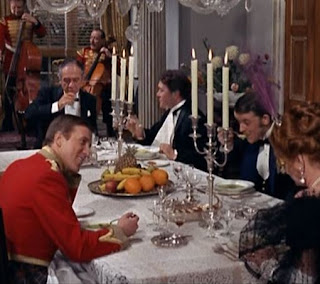The Inland Revenue - Coffins and Customers
My use of the term Pukka Sahib's to describe former Inland Revenue inspectors, may have given the impression that HM Revenue and Customs wasn't one big happy family. And that's not the case. I've made some good friends from the former Inland Revenue side. But when you bring two organisations together there's always going to be a bit of mutual suspicion. The rumour that Inland Revenue inspectors always took an Assistant Officer out on visits with them to carry their briefcase and the perception that they were higher graded for doing the same work, created a bit of suspicion on the former Customs and Excise side that the "merger" was actually a takeover.
If you're looking for similarities between the private and public sector, the apprehension that rattled around Customs and Excise offices was exactly the same as I'd heard described at limited companies that had been taken over. It was probably worse for the Senior Officers because they had more to lose from the top-heaviness of the merged organisation. But the only time the "trickle-down effect" really works is when it comes to paranoia.
You might say that the only positive aspect of HM Revenue and Customs' relentless pursuit of job cuts and office closures was that it broke down barriers pretty quickly. Either people moved, or the type of work they did moved. But whatever the reason, former Customs and Inland Revenue began working side by side.
I'm told that before computerisation arrived in the 1980's, the Inland Revenue used to store each Pay As You Earn taxpayer's details on a Contact Card, and these "Concard's" were stored in wooden boxes called "coffins". That might account for the strong public service ethic of the Inland Revenue - all those "coffins" laid out reminding them they were responsible for taxpayer's from the cradle to the grave. Whether that's true or not, the closure of the enquiry centres in 2014 was the last straw for some ex-Inland Revenue staff who believed it was the loss of their last direct link with the community.
Of course, that's not true, and contact is still only a phone call away. It's probably not surprising that when the two organisations merged, the biggest dispute was what to call the punters. The Inland Revenue referred to "taxpayers", but Customs and Excise talked about "traders". In a metaphorical sense it was the difference between dealing with armed combatants who had chosen to go into business, and a wider population that included civilians. In the end, the term "Customer" was agreed upon, satisfying nobody, least of all the punters.




